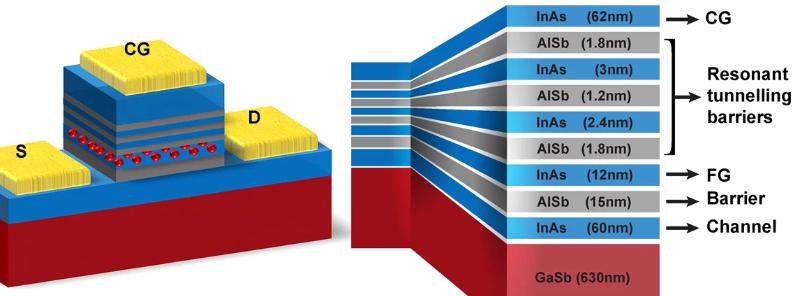Scientists invent new computer memory, expect it to solve the digital technology energy crisis

A new type of computer memory, dubbed as universal computer memory, which could solve the digital technology energy crisis has been invented and patented by scientists from Lancaster University in the UK. The electronic memory device is said to transform daily life with its ultra-low energy consumption, as described in research published in Scientific Reports.
Energy savings from efficient lighting and appliances have been completely wiped out by increased use of computers and gadgets. By 2025, a 'tsunami of data' is expected to consume a fifth of global electricity, but this new memory device would immediately lower the peak power consumption in data centers by a fifth from current energy usage levels.
For example, it would allow computers which do not need to boot up and could instantaneously and imperceptibly go into an energy-saving sleep mode, even between keystrokes.
"Universal Memory, which has robustly stored data that is easily changed, is widely considered to be unfeasible, or even impossible, but this device demonstrates its contradictory properties." Physics Professor Manus Hayne of Lancaster University said.
A US patent has been granted for the electronic memory device with another patent pending, while multiple companies have expressed an interest or are actively involved in the research.
The inventors of the device used quantum mechanics to solve the dilemma of choosing between stable, long-term data storage and low-energy writing and erasing, according to Lancaster University.
The new memory device could replace the 100 billion dollar market for Dynamic Random Access Memory (DRAM). Which is currently the 'working memory' for computers, as well as the long-term memory in flash drives.
While writing data to DRAM is fast and low-energy, the data is volatile and must be continuously 'refreshed' to avoid it being lost. this is inconvenient and inefficient. Flash stores data robustly, but writing and erasing is slow, energy intensive and deteriorates it, making it unsuitable for working memory, the report said.
"The ideal is to combine the advantages of both without their drawbacks, and this is what we have demonstrated. Our device has an intrinsic data storage time that is predicted to exceed the age of the Universe, yet it can record or delete data using 100 times less energy than DRAM," Professor Hayne said.
Featured image: Scientific Reports / University of Lancaster

Commenting rules and guidelines
We value the thoughts and opinions of our readers and welcome healthy discussions on our website. In order to maintain a respectful and positive community, we ask that all commenters follow these rules.